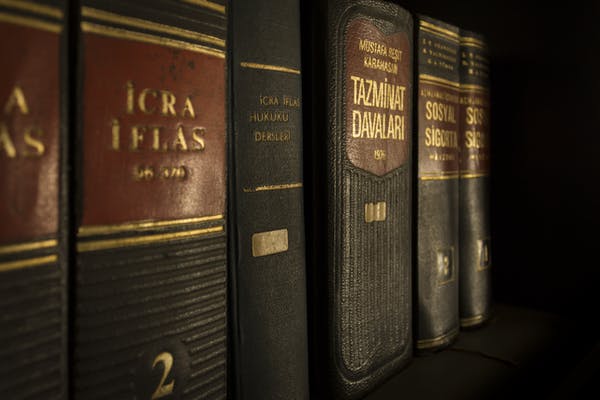Case-1-Meaning of the term “vest”- Howrah Municipal Corpn. & Others vs Ganges Rope Co. Ltd. & Others on 19 December, 2003 (SC)
The word ‘vest’ is normally used where an immediate fixed right in present or future enjoyment in respect of a property is created. With the long usage the said word ‘vest’ has also acquired a meaning as “an absolute or indefeasible right” [See K.J. Aiyer’s ‘Judicial Dictionary’ (A complete Law Lexicon), Thirteenth Edition].
Emphasis Supplied
Case-2-Mening of Term “Vested”-Mosammat Bibi Sayeeda & Ors. Etc vs The State Of Bihar & Ors. Etc on 25 April, 1996 Equivalent citations: 1996 AIR 1936, JT 1996 (4) 637
The word ‘vested” is defined in Black’s Law Dictionary [6th Edn.] at page 1563 as “Vested. Fixed; accrued; settled; absolute; complete. Having the character or given the rights of absolute ownership; not contingent; not subject to be defeated by a condition precedent” Rights are “vested” when right to enjoyment, present or prospective, has become property of some particular person or persons as present interest; mere expectancy of future benefits, or contingent interest in property founded on anticipated continuance of existing law, does not constitute vested rights. In Webster’s Comprehensive Dictionary, [International Edn.] at Page 1397 ‘vested” is defined as “[L]aw held by a tenure subject to no contingency; complete; established by law as a permanent right; vested interests”.
Emphasis Supplied
Case-3-Vested right is a right independent of any contingency-J.S.Yadav vs State Of U.P & Anr on 18 April, 2011
Thus, “vested right” is a right independent of any contingency. Such a right can arise from a contract, statute or by operation of law.
The Supreme Court further observed that
In Union of India & Ors. V. Tushar Ranjan Mohanty & Ors., (1994) 5 SCC 450, this Court declared the amendment with retrospective operation as ultra vires as it takes away the vested rights of the petitioners therein and thus, was unreasonable, arbitrary and violative of Articles 14 and 16 of the Constitution. While deciding the said case, this Court placed very heavy reliance on the judgment in P.D. Aggarwal & Ors. v. State of U.P. & Ors., AIR 1987 SC 1676, wherein this Court has held as under:
“…the Government has power to make retrospective amendments to the Rules but if the Rules purport to take away the vested rights and are arbitrary and not reasonable then such retrospective amendments are subject to judicial scrutiny if they have infringed Articles 14 and 16 of the Constitution.”
Emphasis Supplied
Case-4- Right to take advantage of an enactment is not a vested right- Thyssen Stahlunion Gmbh Etc vs Steel Authority Of India Ltd on 7 October, 1999 (SC)
Right to take advantage of an enactment is not a vested right. One cannot have mere abstract right but only accrued right. Until award is made no party has an accrued right. Till the award is made nobody knows his rights.
The Supreme Court further held that
In Abbott v. The Minister for Lands, (1895) AC 425 PC the Court said that “the mere right, existing at the date of a repealing statute, to take advantage of provisions of the statute repealed is not a `right accrued’ within the meaning of the usual saving clause.” The appellant had contended that under the repealed enactment he had a right to make the additional conditional purchase, and this was a “accrued right” at the time the Crown Lands Act of 1884 was passed and that notwithstanding the repeal it remained unaffected by such repeal. The 1884 Act had repealed earlier Crown Lands Act of 1861. The Board observed :
“It has been very common in the case of repealing statute to save all rights accrued. If it were held that the effect of this was to leave it open to any one who could have taken advantage of any of the repealed enactments still to take advantage of them, the result would be very far- reaching.
It may be, as Windeyer J. observes, that the power to take advantage of an enactment may without impropriety be termed a “right”. But the question is whether it is a “right accrued” within the meaning of the enactment which has to be construed.
Their Lordships think not, and they are confirmed in this opinion by the fact that the words relied on are found in conjunction with the words “obligations incurred or imposed”. They think that the mere right (assuming it to be properly so called) existing in the members of the community or any class of them to take advantage of an enactment, without any act done by an individual towards availing himself of that right, cannot properly be deemed a “right accrued” within the meaning of the enactment. Even if the appellant could establish that the language of sec. 2(b) was sufficient’ to reserve to him the right for which he contends, he would have to overcome further difficulties. That enactment only render’s “rights accrued” unaffected by the repeal “subject to any express provisions of this Act in relation thereto”.
Emphasis Supplied
Case-5- The mere right to take advantage of the provisions of an Act is not accrued right –Hungerford Investment Trust … vs Haridas Mundhra & Others on 9 March, 1972 Equivalent citations: 1972 AIR 1826, 1972 SCR (3) 690
The mere right to take advantage of the provisions of an Act is not accrued right.
Case-6- The provisions of a repealed statute cannot be relied upon after it has been repealed. But what has been acquired under the Repealed Act cannot be disturbed-D.C. Bhatia And Ors. vs Union Of India (Uoi) And Anr. on 19 October, 1994 Equivalent citations: JT 1994 (7) SC 114, 1994 (4) SCALE 613, (1995) 1 SCC 104, 1994 Supp 4 SCR 539
It was observed by Tindal, C.J., in the case of Kay v. Goodwin (1830) 6 Bing. 576, 582:
The effect of repealing a statute is to obliterate it as completely from the records of the Parliament as if it had never been passed; and it must be considered as a law that never existed except for the purpose of those actions which were commenced, prosecuted and concluded whilst it was an existing law.
53. The provisions of a repealed statute cannot be relied upon after it has been repealed. But, what has been acquired under the Repealed Act cannot be disturbed. But, if any new or further step is needed to be taken under the Act, that cannot be taken even after the Act is repealed.
Emphasis Supplied
Case-7- If legislature considered in its wisdom to confer certain rights or facilities on the tenants, it could due to changed circumstances curtail, modify, alter or even take away such rights -Kewal Singh vs Lajwanti on 4 October, 1979 Equivalent citations: 1980 AIR 161, 1980 SCR (1) 854
Thus any right that the tenant possessed after the expiry of the lease was conferred on him only by virtue of the Rent Control Act. It is, therefore, manifest that if the legislature considered in its wisdom to confer certain rights or facilities on the tenants, it could due to changed circumstances curtail, modify, alter or even take away such rights or the procedure enacted for the purpose of eviction and leave the tenants to seek their remedy under the common law.
Emphasis Supplied
Case-8-Vested Right or Settled Expectation vis-a-vis-Public Interest Or right of Particular Person- Howrah Municipal Corpn. & Others vs Ganges Rope Co. Ltd. & Others on 19 December, 2003 (SC)
What we can understand from the claim of a ‘vested right’ set up by the respondent-company is that on the basis of Building Rules, as applicable to their case on the date of making an application for sanction and the fixed period allotted by the court for its consideration, it had a ‘legitimate’ or ‘settled expectation’ to obtain the sanction. In our considered opinion, such ‘settled expectation’, if any, did not create any vested right to obtain sanction. True it is that the respondent-company which can have no control over the manner of processing of application for sanction by the Corporation cannot be blamed for delay but during pendency of its application for sanction, if the State Government, in exercise of its rule making power, amended the Building Rules and imposed restrictions on the heights of buildings on G.T. Road and other wards, such ‘settled expectation’ has been rendered impossible of fulfillment due to change in law. The claim based on the alleged ‘vested right’ or ‘settled expectation’ cannot be set up against statutory provisions which were brought into force by the State Government by amending the Building Rules and not by the Corporation against whom such ‘vested right’ or ‘settled expectation’ is being sought to be enforced. The ‘vested right’ or ‘settled expectation’ has been nullified not only by the Corporation but also by the State by amending the Building Rules. Besides this, such a ‘settled expectation’ or so-called ‘vested right’ cannot be countenanced against public interest and convenience which are sought to be served by amendment of the Building Rules and the resolution of the Corporation issued thereupon.
In the matter of sanction of buildings for construction and restricting their height, the paramount consideration is public interest and convenience and not the interest of a particular person or a party.
Emphasis Supplied



